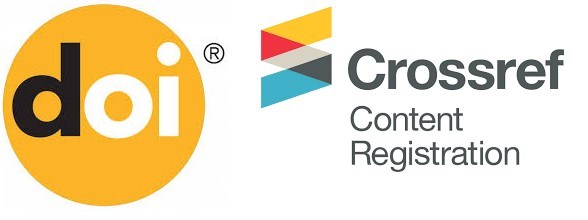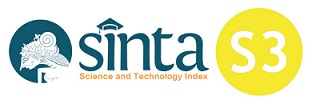Fa’āliyatu Tadris Al-Lugah Al-‘Arabiyah Fi Al-Kitāb “Modul Hikmah” Fi Al-Shaffi Al-‘Asyiri Li Al-Madrasah Al-Tsanawiyyah Al-Islamiyyah Al-Hukumiyyah Pakem Sleman Bi Yogyakarta
DOI:
https://doi.org/10.32699/liar.v4i01.1339Keywords:
The Effectiveness Of Arabic Learning, Modul Hikmah Book, Reading SkillsAbstract
This study aims to determine the method of teaching Arabic by using the book "Wisdom Module" in the success of reading skills at MAN Pakem Sleman Yogyakarta and to find out the extent of the effectiveness of Arabic teaching by using the book "Module Wisdom" in the success of reading skills at MAN Pakem Sleman Yogyakarta. The results of this study are expected to be a scientific paper that is able to enrich insights about learning Arabic, especially insights for teachers to choose the right method, especially adjusting the ability of students in learning.
This type of research is Field Research (field research) by taking a location in MAN Pakem Sleman Yogyakarta. Data collection is done by using methods of observation, interviews, documentation, questionnaires. Data analysis techniques are performed using non-statistical data analysis or descriptive data analysis.
The results showed that: 1 method used by teachers in teaching Arabic is the method of memorization, reading, examinations, and question and answer. And the Al-Qiroah Method used by the teacher is divided into two, 1. Silent reading, 2. Hard reading. 2. The effectiveness of teaching Arabic by using the book "Wisdom Module" has been effective, and get high results and Arabic exam results (excellent reading) "very good". Can be proven the results of class 10, namely: 83.82 and this is in accordance with Suharsimi Arikunto in his book that is 80-100 and very good interview with Ustad Muhammad Rosid that students are already interested in reading Arabic texts in the book "Wisdom Module" and this very good, and he also said that the use of the book "Wisdom Module" is very effective than the use of books from school.
التجريد
يهدف البحث لمعرفة طريقة تدريس اللغة العربية فى الكتاب "مودل حكمة" فى نجاح مهارة القراءة للمدرسة ا الثانوية الإسلامية الحكومية فاكم سليمان بيوكياكرتا. لمعرفة فعالية التدريس اللغة العربية فى الكتاب "مودل حكمة" فى نجاح مهارة القراءة للمدرسة الثانوية الإسلامية الحكومية فاكم سليمان بيوكياكرتا. والمرجو من نتائج هذا البحث أن يكون بحثا عمليا يزيد علي معرفة فى تعليم اللغة العربية و خصوصا فى اختيار المناهج المناسبة و الموافقة بمهارة الطلاب فى اللغة العربية.
هذا البحث بحث ميداني فى المدرسة الثانوية الإسلامية الحكومية فاكم سليمان بيوكياكرتا. وطرق جمع البيانات هي طريقة المراقبة, والمقابلة, وطريقة الوثائق و الإستفتاء. وطريقة تحليل البيانات بطريقة تحليل البيانات غير إحصائية أو الوصفي.
دلت نتيجة هذا البحث : 1. أن طريقة التى استخدمه المعلّم يعنى طريقة الحفظ, وطريقة القراءة,و طريقة الإختبار, وطريقة التساؤلات. وتنقسم طريقة القراءة التى استحدمه المعلّم إلى قسمين: 1(. القراءة الصامتة , 2. القراءة الجهرية). 2. فعالية تدريس اللغة العربية فى الكتاب "مودول الحكمة" فعّال, وتؤدى إلى نتيجة عالية وحصول الإختبار اللغة العربية "جيد جدا" ودليل علي أن نتيجة من الصف العاشر 84,82 وهذا مناسب مع سوحارسم أريكونتو فى كتبه يعنى 80-100 "جيد جدا".والمقابلة مع الأستاذ محمد رشيد أن أكثر الطلاب قد مهرو فى قراءة النصوص اللغة العربية فى الكتاب "مودول الحكمة", وهذا أحسن. وقال أيضا أن استخدام الكتاب "مودول الحكمة" أشد فعلا من استخدام كتاب اللغة العربية من المدرسة.
الكلمة الر ئيسية : فعالية تدريس اللغة العربية، الكتاب "مودول حكمة" , مهارة القراءة
References
محمد على كامل, تطوير منهج تعليم اللغة العربية, (مالانق: مطبعة جامعة مولانا مالك إبراهيم الإسلامية الحكومية).
محمد عبد القادر احمد, طرق التعليم اللغة العربية, ( المصرية: مكتبة النهضة).
محمد علي السّمان, فى تدريس اللغة العربية, (المصرية: مكتبة دار المعارف.
المنجد, دارالمشرق, بيروت.
Acep Hermwan. Metodelogi Pembelajaran Bahasa Arab, Bandung: PT Remaja Rosda Karya.
Arifin, Zainal. Penelitian Pendidikan Metode dan Paradigma Baru, Bandung: PT Rosdakarya, 2011.
Arikunto, Suharsimi dkk. Penelitian Tindakan Kelas, Jakarta: PT Bumi Aksara, 2009.
AR, Syamsuddin dan Vismaia S. Damayanti, Metodologi Penelitian Pendidikan Bahasa, Bandung: PT. Remaja Rosdakarya, 2007.
Asyrofi, Syamsuddin, dkk. Metodologi Pembelajaran Bahasa Arab, Yogyakarta: Pokja Akademik, 2006.
Azwar, Saifudin. Metode Penelitian, Yogyakarta: Pustaka Pelajar, 1996.
Fuad Efendi, Ahmad. Metodologi Pengajaran Bahasa Arab, Jombang: Misykat, 2009.
Hadi, Sutrisno. Metode Research, Jilid II, Yogyakarta: Andi Offset, 1989.
Hermawan, Acep. Metodologi Pembelajaran Bahasa Arab, Bandung: Rosdakarya, 2011.
Indrakusuma, Amir Daien. Pengantar Ilmu Pendidikan, Surabaya: Usaha Nasional, 1973.
Iskandarwassid, dan dadang sunendar, Strategi Pembelajaran Bahasa, cet. 3, Bandung: PT Remaja Rosdakarya, 2011.
Kamus Besar Bahasa Indonesia, Tim Penyusun Kamus Pusat Pembinaan dan pengembangan Bahasa, Depdikbut, Jakarta: Balai Pustaka, 1989.
Kamus Al-Munawwir Indonesia Arab Terlengkap, Tashih KH Zainal Abidin Munawwir, Surabaya: Pustaka Progressif,2007.
Moleong, Lexy. Metodologi Penelitian Kualitatif, cet. 21, Bandung: PT Rosdakarya, 2005.
Nasution, S. Metode Research (Penelitian Ilmiah), cet. 8. Jakarta: PT. Bumi Aksara, 2006.
Nazir, Moh. Metode Penelitian, Jakarta: Ghalia Indonesia, 1988.
Rahmawati, Nailur. Metode Permainan Edukatif dalam Belajar Bahasa Arab, Yogyakarta: Diva Press, 2011.
Soeparno, Media Pengajaran Bahasa, Yogyakarta: IKIP Yogyakarta, 1980.
Soetopo, Hendyat. Pendidikan dan Pembelajaran, Teori, Permasalahan, dan Praktek, Malang: UMM Press, 2005.
Sukandarrumidi. Metodologi Penelitian, Petunjuk Praktis untuk Peneliti Pemula, Yogyakarta: Gadja Mada University Press, 2002.
Tiyar Yusuf, Syaiful Anwar. Metodelogi Pendidikan Agama dan Bahasa Arab, Jakarta: PT Raja Grafindo Persada 1995
Uno, Hamzah B. Menjadi Peneliti PTK yang Profesional, Jakarta: Bumi Aksara, 2011.
Downloads
Published
Issue
Section
License
Authors who publish with this journal agree to the following terms:
a. Authors retain copyright and grant the journal right of first publication with the work simultaneously licensed under a Creative Commons Attribution-ShareAlike 4.0 International License. that allows others to share the work with an acknowledgement of the work's authorship and initial publication in this journal.
b. Authors are able to enter into separate, additional contractual arrangements for the non-exclusive distribution of the journal's published version of the work (e.g., post it to an institutional repository or publish it in a book), with an acknowledgement of its initial publication in this journal.
c. Authors are permitted and encouraged to post their work online (e.g., in institutional repositories or on their website) prior to and during the submission process, as it can lead to productive exchanges, as well as earlier and greater citation of published work (See The Effect of Open Access).












